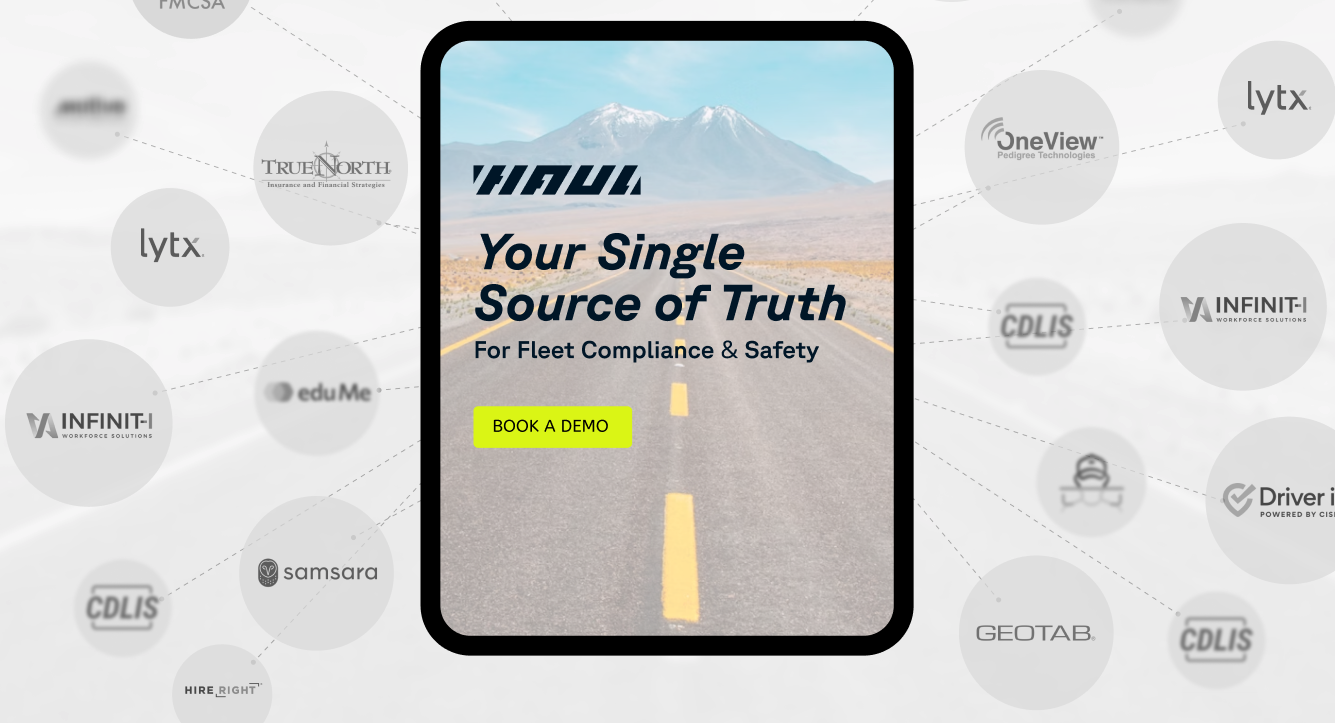Understanding Commercial Truck Insurance in Pennsylvania

Navigating the world of commercial truck insurance can be a daunting task. Especially in Pennsylvania, where the trucking industry plays a vital role in the state's economy.
Understanding the intricacies of insurance coverage, regulatory requirements, and risk management strategies is crucial. It's not just about compliance, but also about protecting your business and your bottom line.
This guide is designed to help fleet managers, logistics directors, and risk management officers in Pennsylvania. We'll delve into the complexities of commercial truck insurance, providing you with the knowledge you need to make informed decisions.
From understanding the types of coverage available to leveraging technology for real-time data integration and compliance management, we've got you covered. We'll also explore strategies for managing risks and costs associated with insuring commercial trucks.

by Eric Weber (https://unsplash.com/@ericwebr)
So buckle up and let's embark on this journey to understanding commercial truck insurance in Pennsylvania. Your road to better fleet management starts here.
The Keystone State's Commercial Truck Insurance Landscape
Pennsylvania, known as the Keystone State, has a diverse and dynamic trucking industry. This industry is a key player in the state's economy, transporting goods across the state and beyond.
However, operating commercial trucks in Pennsylvania comes with its unique set of challenges. One of these is navigating the state's specific insurance requirements and understanding the various types of coverage available.
Pennsylvania's Insurance Requirements for Commercial Trucks
In Pennsylvania, commercial trucks are required to have a minimum level of liability insurance. This is to cover any damages or injuries that may occur in an accident where the truck driver is at fault.
The minimum liability coverage required depends on the type of cargo the truck carries and its operating radius. For instance, trucks carrying non-hazardous freight and operating within a 150-mile radius must have a minimum of $750,000 in liability coverage.
However, these are just the minimum requirements. Depending on the nature of your operations and the risks involved, you may need additional coverage.
Types of Commercial Truck Insurance Coverage
When it comes to commercial truck insurance, there are several types of coverage to consider. Liability insurance, as mentioned earlier, is mandatory. But there's more to it than just that.
Physical damage coverage, for instance, covers damages to your own truck in case of an accident. This is especially important if you have a newer or more expensive truck.
Cargo insurance covers the goods you're transporting. This is crucial if you're carrying valuable or hazardous materials.
There's also coverage for uninsured or underinsured motorists. This comes into play if you're involved in an accident with a driver who doesn't have sufficient insurance.
Lastly, there are additional coverages like roadside assistance and rental reimbursement that can be added to your policy. These can provide extra protection and peace of mind in case of unexpected incidents on the road.
Navigating Compliance and Safety with Insurance
Commercial truck insurance isn't just about meeting state requirements. It's also a crucial tool for managing compliance and safety in your fleet operations.
Insurance policies can help you stay on top of regulatory changes and ensure your operations are always in line with state and federal laws. This can save you from hefty fines and penalties down the line.
Moreover, insurance plays a key role in promoting safety within your fleet. By providing coverage for accidents and damages, it encourages safe driving practices and helps maintain a culture of safety among your drivers.

The Role of Insurance in Fleet Risk Management
Risk management is a critical aspect of fleet operations. And insurance plays a pivotal role in this process.
Firstly, insurance provides financial protection against unexpected incidents. This could be anything from accidents and breakdowns to cargo theft and damage.
Secondly, insurance helps you manage liability risks. If one of your trucks is involved in an accident, your liability insurance will cover the damages and protect your business from potential lawsuits.
Moreover, insurance can also help you manage operational risks. For instance, if a truck breaks down and you have rental reimbursement coverage, you can quickly get a replacement and keep your operations running smoothly.
Lastly, insurance can also cover emerging risks like cyber threats and supply chain disruptions. This is especially important in today's digital and interconnected world.
Leveraging Technology for Compliance and Safety
Technology has become a game-changer in the world of commercial truck insurance. It's now being used to improve compliance, enhance safety, and even reduce insurance premiums.
Telematics and GPS tracking, for instance, can provide real-time insights into your fleet's operations. This can help you monitor driver behavior, track vehicle maintenance, and even predict potential risks.
Data analytics can also be used to analyze this data and identify trends and patterns. This can help you make informed decisions about your insurance coverage and risk management strategies.
Moreover, technology can also streamline the insurance management process. From policy comparison and purchase to claims filing and tracking, technology can make the entire process more efficient and transparent.
Cost Management in Commercial Truck Insurance
Managing costs is a critical aspect of commercial truck insurance. After all, insurance premiums can significantly impact your bottom line.
However, it's important to remember that cost management isn't just about finding the cheapest policy. It's about finding the right balance between cost and coverage.
This means understanding the factors that influence your premiums and taking steps to manage these factors. It also means investing in safety initiatives that can help reduce your premiums in the long run.
Factors Influencing Insurance Premiums in PA
Several factors can influence your commercial truck insurance premiums in Pennsylvania. Understanding these factors can help you manage your costs more effectively.
One of the key factors is the type of trucks you operate. For instance, dump trucks often have higher premiums than other types of trucks due to their higher risk profile.
The experience and driving record of your drivers can also impact your premiums. Drivers with a clean driving record and plenty of experience are often rewarded with lower premiums.
Your claims history is another important factor. If you have a history of frequent claims, insurers may see you as a high-risk client and increase your premiums.
Lastly, the way you use your trucks can also influence your premiums. Trucks used for long-haul operations, for instance, may have higher premiums due to the increased risk of accidents and breakdowns.
Reducing Costs through Fleet Safety Initiatives
One of the most effective ways to reduce your insurance premiums is through fleet safety initiatives. These initiatives can help reduce the risk of accidents and claims, which can in turn lower your premiums.
Driver training programs, for instance, can help improve driving skills and promote safe driving habits. This can reduce the risk of accidents and help maintain a clean driving record.
Regular vehicle maintenance is another important safety initiative. Well-maintained trucks are less likely to break down or cause accidents, which can help reduce your claims and lower your premiums.
Lastly, investing in safety technology like telematics and GPS tracking can also help reduce your premiums. These technologies can provide real-time insights into your fleet's operations and help you identify and mitigate risks before they lead to accidents or claims.
Partnering with the Right Insurer
Choosing the right insurer is a crucial part of managing your commercial truck insurance. The right insurer can provide the coverage you need at a price you can afford.
But it's not just about price and coverage. It's also about service. You want an insurer who will be there for you when you need them, whether it's to file a claim or to answer a question about your policy.
In addition, the right insurer can also provide valuable resources and support to help you manage your risks and comply with regulations.
The Importance of Transparency and Strong Partnerships
Transparency is key when it comes to commercial truck insurance. You want an insurer who is upfront about their policies, including their coverage limits, exclusions, and premiums.
A transparent insurer can help you understand exactly what you're getting for your money. This can help you avoid surprises down the line, such as finding out that a certain type of claim isn't covered by your policy.
In addition, fostering a strong partnership with your insurer can also be beneficial. A strong partnership can lead to better service, more personalized coverage, and potentially even lower premiums.

Conclusion: Ensuring Adequate Coverage and Compliance
Understanding commercial truck insurance in Pennsylvania is crucial for fleet managers, logistics directors, and risk management officers. It's not just about meeting state requirements, but also about protecting your business and your employees.
By ensuring adequate coverage and compliance, you can manage your risks, improve your operations, and ultimately, drive your business forward.

